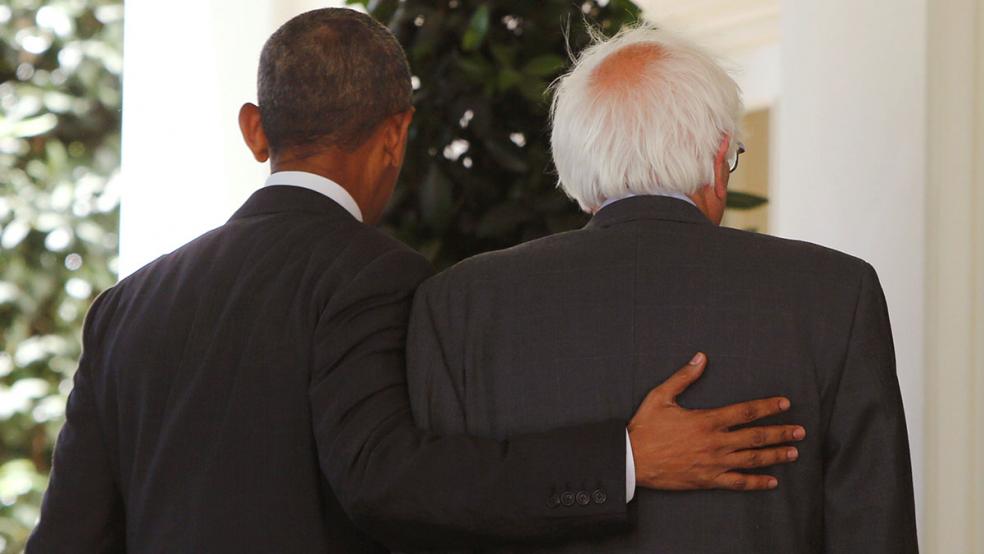Sen Bernie Sanders of Vermont may not have formally suspended his campaign or given up his Secret Service detail just yet. But on Wednesday, he finally conceded that he had lost to former secretary of state Hillary Rodham Clinton in their surprisingly grueling primary battle for the Democratic presidential nomination.
Asked during a taped interview with CSPAN whether he was counting on delivering a major address at the Democratic National Convention next month in Philadelphia, Sanders replied, "It’s hard to say. It doesn't appear that I'm going to be the nominee, so I'm not going to be determining the scope of the convention.”
Related: Trump’s Biggest Gift to Clinton: Choosing the VP She Really Wants
Recalling his recent meeting with Clinton and her aides regarding the party’s platform and rules, Sanders said, “What we’re trying to do is, A, to create the most progressive platform that we possibly can reflecting the needs of working families and students and the environment, health care and so forth.”
“And secondly of all, we’re trying to do nothing less than transform the Democratic Party,” through rules changes that would open up the party to more independents and young newcomers to politics, he said.
Sanders, a self-styled democratic socialist who several time nearly toppled Clinton with his calls for income equality and top-to-bottom reforms of Wall Streets and the campaign finance system, said that Clinton should pick "the most progressive candidate that she can find" to be her running mate.
A handful of candidates – but not Sanders – reportedly are being vetted for the second spot on the ticket. They include Housing and Urban Development Secretary Julian Castro, Sen. Timothy Kaine of Virginia and Sen. Elizabeth Warren of Massachusetts, who boast the strongest credentials among liberal Democrats and has been a sharp critic of Wall Street.
Related: Sanders: It doesn't appear that I'm going to be the nominee
“I think it would be a terrible mistake to go to a candidate who has roots in Wall Street or was backed by Wall Street," Sanders said.
Clinton locked up the nomination June 9 after impressive victories in California and New Jersey and then gaining the endorsements of President Obama, Vice President Biden and other top Democrats. Since then, she has attempted to woo Sanders and his millions of liberal supporters with promises that the veteran Vermont politician would assume a major role at the convention in shaping the party’s platform.
That task hasn’t been easy, because Sanders still bears animosity towards Clinton and Democratic Party officials for rules and maneuvering that he believes frustrated his campaign and denied him more state victories. And polls suggest that a third or more of Sanders’ supporters won’t vote for Clinton under any circumstances.
Media reports suggest that Clinton aides are peeved with Sanders and his advisers for withholding an endorsement and formally remaining in the race to maximize their advantage at the convention. At the same time, Clinton has fully pivoted to the general election campaign, and is now fully engaged in fighting presumptive GOP nominee Donald Trump for the White House. Just today, Trump and Clinton delivered dueling major addresses, with each attacking the other for dishonesty and incompetence.
Sanders for a while he threatened to take his fight for the nomination all the way to the convention floor, where he hoped he could convince several hundred of Clinton’s “super delegates” to change their allegiance and support him – arguing that he would be the stronger candidate against Trump. .
However, cooler heads have prevailed. The 74-year-old Sanders – who returned on Monday to Capitol Hill with his own Secret Service detail – now appears resigned to a role of major player and speaker at the convention and a leading spokesperson for a “Democratic political revolution” thereafter.





